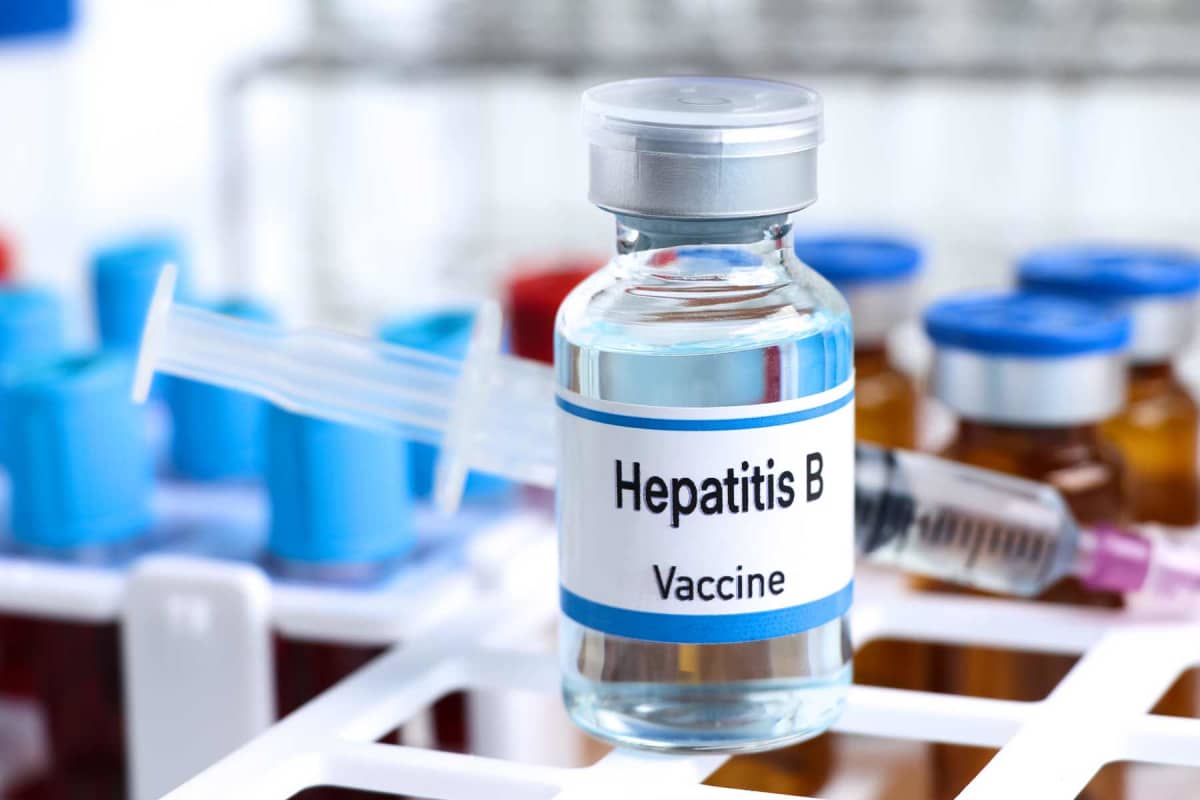
How much does the Hepatitis B vaccine cost?
How much does the Hepatitis B vaccine cost?
$40 – $110 average cost per dose (without insurance)
$120 – $330 average cost for three-dose series (without insurance)
Average Hepatitis B vaccine price
The Hepatitis B vaccine costs $40 to $110 per dose without insurance or $120 to $330 total for the full three-dose series. Hepatitis B vaccine prices depend on where you get vaccinated, with the lowest prices usually found at local health departments. Most insurance plans cover the full Hep B vaccine cost.

| Vaccine provider | Average cost for 3-dose series (without insurance) |
|---|---|
| Local health department | $120 – $270 |
| Pharmacy | $220 – $330 |
Many local health departments offer discounted Hepatitis B vaccines for uninsured and underinsured individuals.
The federal Vaccines for Children (VFC) program provides free Hepatitis B vaccination for eligible children ages 18 and younger.
The Hepatitis B vaccine is also available as part of a combination Hepatitis A & B vaccine called Twinrix, which costs $400 to $500 total for the complete 3-dose series without insurance.
What is Hepatitis B?
Hepatitis B is a serious infection caused by the hepatitis B virus (HBV). It can lead to both acute and chronic liver disease, potentially resulting in liver failure, liver cancer, or living scarring known as cirrhosis. Hepatitis B affects millions of people worldwide and is a significant global health concern.
Acute Hepatitis B is short term, lasting less than six months. Most adults recover fully, but infants and children are more likely to develop chronic Hepatitis B.
Chronic Hepatitis B lasts more than six months and increases the risk of liver failure, liver cancer, and cirrhosis.
How do you get Hepatitis B?
Hepatitis B is transmitted through contact with infected blood, semen, and other bodily fluids. The most common ways to contract the virus include:
Sexual contact with an infected person
Sharing needles, syringes, or other drug-injection equipment
Mother-to-child transmission during childbirth
Accidental needle sticks, especially among healthcare workers
Sharing personal items like toothbrushes or razors with an infected person
It's important to note the Hepatitis B virus cannot be spread through casual contact such as hugging or shaking hands.
Is Hepatitis B curable?
There is no cure for chronic Hepatitis B. However, the condition can sometimes be managed effectively with proper treatment. Medications can help to suppress the virus and slow liver damage. Regular monitoring of liver function and virus levels is essential, and in severe cases, a liver transplant may be necessary.
Hepatitis B vaccine FAQs
How long does the Hepatitis B vaccine last?
The Hepatitis B vaccine provides long-lasting protection. For most people who complete the full three-dose vaccination series and develop adequate antibody levels, protection lasts for at least 20 years and potentially for life. However, certain high-risk groups may need periodic blood tests to check antibody levels and might require booster shots.
How many Hepatitis B vaccines do you need?
The typical Hepatitis B vaccination schedule consists of 3 doses given over 6 months. Some adults may be eligible for a two-dose series, with the doses given one month apart.
The number of doses may vary for individuals with certain health conditions, so it's essential to follow your healthcare provider's recommendations.
How effective is the Hepatitis B vaccine?
The Hepatitis B vaccine is highly effective. For people who receive the full series of doses, the vaccine is up to 95% effective in preventing Hepatitis B infection.
When do you get the Hepatitis B vaccine?
The Centers for Disease Control and Prevention (CDC) recommends the following vaccination schedule:
First dose: Given at any time; newborns should receive this dose within 24 hours of birth, usually in the delivery room
Second dose: 1 month after the first dose
Third dose: At least 4 months after the first dose and at least 2 months after the second dose
It's never too late to get vaccinated, and vaccination is strongly recommended for those who haven't received it earlier in life.
When did the Hepatitis B vaccine become mandatory for school?
In 2021, the Hepatitis B vaccine became mandatory in all 50 states for children entering kindergarten. However, widespread implementation of Hep B vaccination requirements began in 1991, and 35 states had implemented school entry requirements by 1997.
Does the Hepatitis B vaccine hurt?
Like most vaccinations, the Hepatitis B vaccine may cause some mild discomfort. Most people experience little to no pain during the injection. After vaccination, there might be soreness at the injection site. Other side effects may include low-grade fever or fatigue. These side effects are generally mild and short-lived.
The benefits of protection against Hepatitis B far outweigh the temporary discomfort of vaccination.
Is the Hepatitis B vaccine a live vaccine?
No, the Hepatitis B vaccine is not a live vaccine, and it cannot cause a Hepatitis B infection.

Where to get the Hepatitis B vaccine
You can get the Hepatitis B vaccine at:
Pharmacies like CVS and Walgreens
Local health departments
Community health clinics
Doctor's offices
Some of these providers offer walk-in services for vaccinations, but it's best to call ahead to confirm availability and schedule an appointment if necessary. Remember to bring any relevant immunization records when getting vaccinated.